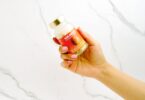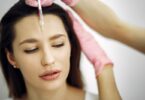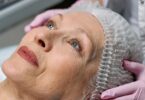As any cosmetic surgeon can tell you, cosmetic procedures on the surface merely reset the clock; they don’t stop aging, and they don’t stop the bad habits that contributed to your appearance of aging. They will also tell you that if you live a healthy lifestyle, not only will you look better and live longer, any cosmetic changes you make will be amplified and last longer.
According to Dr. Ron Klatz, the founder of the founder of the American Academy of Anti-Aging Medicine, “It’s (anti-aging medicine) basically advanced preventative medicine.â€
The principle causes of aging? Genetic, says Dr. Klatz.
And while the length of our lives is more or less genetically “set,†the environment can significantly affect it. “You can either slow down the aging process or accelerate it,†says Andre Berger, a cosmetic surgeon who practices anti-aging medicine in Beverly Hills.
For most anti-aging doctors, the strategies to combat aging consist of two main components: lifestyle changes and hormonal supplements. Both, they say, are essential.
“Beauty is skin deep but there is a lot under that skin,†says Dr. Saunders, a Texas-based cosmetic surgeon who uses anti-aging therapies. “Your physical prowess goes straight to the bone. You make that look good, and the skin looks good.â€
The Age of Lifestyle
On the lifestyle front, anti-aging doctors focus on four main things: nutrition, exercise, sleep and stress.
Nutrition. You have to have proper nutrition, which means just what you already know: avoid processed food, avoid sugar, avoid fast food, avoid animal fat, and eat plenty of vegetables, fruits, fish and nuts. Take vitamin supplements just to make sure you’re covered. In general, eat less: the one thing upon which everybody agrees when it comes to longevity is that overweight people die younger. Period.
“The basic [nutrition and aging] issue that we deal with is the badly processed foods we are constantly ingesting, which relate to the overweight issues we are faced with today,†says Dr. Tina Miranda, an anti-aging doctor in South Florida. “That has an effect on how your body and mind work. As a society, that is what we are suffering… It’s actually causing aging to happen at a much more rapid rate.â€
Exercise. The best kind of exercise is cardiovascular, activities like walking, running, bicycling, rowing or swimming. A close second is using free-weights to keep your muscles in shape; even when you are sitting, muscles burn calories. You should exercise at least half an hour a day, and at least three times a week. If you do you will feel and look younger, live longer, and have lots more energy.
“In all of this you have form and function, and exercise is function,†says Dr. Saunders. “I want my patients jogging, biking, boarding, doing yoga, doing marshal arts. I want them doing some weight training and some aerobics, a combination of both.â€
Sleep. The lack of proper sleep is a national epidemic, and the consequences are brutal. Lack of proper sleep weakens our immune systems, reduces our ability to think clearly, degrades all types of physical performance, destabilizes our emotional balance, and accelerates aging. When you look good, people often comment that you look like you’ve gotten a lot of rest. You need seven to eight hours a night. Period.
“Your sleep requirements change over time,†says Dr. Berger. “But for most of your life you need at least 7 hours of sleep. There are people who can get by with less—or think they can. But actually, too little sleep is one of the great causes of aging.â€
Stress. As human beings, we were not designed to face the enormous amount of stimuli that we experience in the modern world. And that is just the environmental stress of noise and pollution. Add to the emotional and financial travails we face everyday, and you have a toxic cocktail of stress that breaks down health and speeds up aging. Whatever the tool—meditation, humor, yoga, exercise—you have to reduce stress.
There are a couple of other things, as well, when it comes to lifestyle and staying young. The first is bad habits, things like smoking, excessive drinking and drug use. Cut that stuff out, period. The second thing is water. You’ve got to drink lots of it, at least a couple of liters—about a half gallon—a day.
Hormone Prescription
Even with all of the above lifestyle changes, you’re still not going to radically turn back the clock. That effort requires the intervention of hormonal therapies.
For both men and women, hormones begin to decline after age 20, and really drop after age 40. A well-managed, doctor-supervised program of hormone replacement results in a flurry of effects: more energy, a greater ability to concentrate and work, greater muscle mass, enriched blood, greater sex drive.
Even with the best anti-aging medicines, however, we will not live forever. What we will do is live better. What anti-aging doctors talk about is not lifespan but health-span—how long we can live well. Assuming that most of us will live to at least 80, the idea is to maintain our minds and bodies in healthy, active states until at least that age, rather than becoming frail and senile well before then. If we are lucky, we’ll live beyond 80, to 90 or 100 or longer. The important thing is to live well, whatever years we have.







